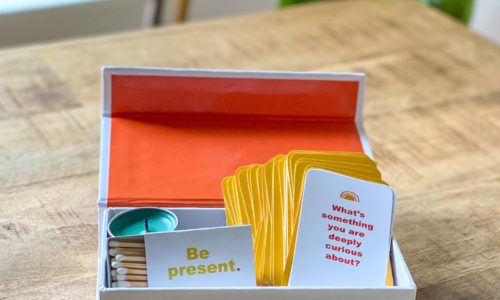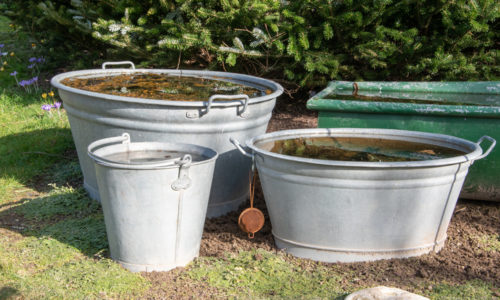Jeff and Marcy Carpenter were tough parents to recruit to Acton Academy. Successful entrepreneurs, they were our family friends and their children, Ellie and Chris, attended the same Montessori school our boys did. They knew this school did not go beyond early elementary years and they, too, needed to make a decision: traditional or non-traditional school?
“I never liked school and hated sitting still all day listening to teachers. I want Ellie and Chris to love school and have a hands-on, fun, high-quality learning experience,” Jeff said.
The Carpenters were both smart and curious. Back in 2009 when we first started talking with them about Acton, they had lots of questions about what we were doing and weren’t immediately sold. I didn’t blame them – at the time, we only had three students and two of them were our own. But after months of hearing about our vision and plans, they came to us and said, “What the hell—what do we have to lose?”
By Year Two, the Carpenters were fully engaged in the Acton community. They’d seen their children happy and loving school. But Jeff saw a gap in our program. “Laura, I’m hearing pretty bad stories at home about one thing: P.E.”
He was right. We’d lost one P.E. coach to a torn Achilles tendon. The next one just wasn’t a fit for our small group of learners. But we all believed P.E. was an important piece of our learning journey. Who would have thought this would trigger a change in a parent’s life?
Jeff Carpenter had come from humble beginnings, become an entrepreneur, and built a successful company. But he had a secret desire.
“I have always wanted to be a coach,” he told me over lunch one day in 2011. He shared stories about his high-school gym class in Oklahoma. “We would make running bets on how long it would take for our coach to fall asleep,” he said. “After taking roll he’d return to his tiny office, pretend to read the newspaper, then drop his chin to his chest while the rest of us played basketball or goofed off—however we goofed off before cell phones.”
Jeff moved on from Oklahoma and earned degrees from the University of Chicago and the Wharton School of Business. Then, through a series of fortunate events, he built two profitable software companies. But he still wanted to be a coach.
He prepared a 10-page proposal for me explaining why he would be the right person to be Acton Academy’s Coach. He called me and said, “Do you have fifteen minutes? I have an idea to propose to you.”
We met at a coffee shop five minutes from school. Before we even took a sip of coffee he said, “Laura, I have a proposal for you. It may be crazy and I won’t be mad if you say no, but I think I could be your P.E. coach.”
“You’re hired,” I said before he could even get his proposal out of his backpack.
By that time we had 36 Eagles at Acton. Coach Carpenter jumped right in. For his first session, he kept the students under tight control. He showed up on campus with a whistle hung around his neck. He ran a demanding warm-up, chose the “good sport of the day,” settled disputes, kept score, gave water breaks, set up and took down equipment.
It worked. For a while.
Our entire philosophy in all areas of the Acton day was evolving toward more and more responsibility and authority for the Eagles. Coach Carpenter resisted this when it came to P.E. “That’s fine for algebra and spelling,” he told me, “but even these awesome kids would tear each other apart if I let them referee their own games. Nothing would ever get done if I let them debate which sport we were going to play, or which music we would listen to. And how could I trust them to call for water breaks in 100-degree heat? They’d all get heat stroke and it would be all my fault!”
But Jeff knew he had to adapt for the Eagles to have a consistent experience from the studio to the field. He gradually allowed them to start calling the shots.
One incident in particular helped. It was the day he came to P.E. when he should have called in sick. He had a sore throat and a headache, but it was the last class of the session and he wanted to be there. No way was he up to running up and down the field, though, much less doing the “Acton Insanity!” warm-up. So he called over a couple of the older Eagles.
“I’m sick,” he said. “You mind running the show today?”
Was it perfect? No. Was there anarchy? A little. Did they love it? YES!
Coach Carpenter had the long summer break to think about what he saw that day and about where the school was heading. Was he ready to change? Was he okay with giving up control? What if something bad happened? What if the Eagles didn’t need him anymore? Could children really lead themselves and teach each other?
He shared these thoughts with a close friend and fellow Acton parent who put it to him this way: “Is this program about you or the kids?”
That hurt. And the friend was right.
Coach Carpenter started to do what we were doing in the studios: he gave more and more power – freedom and responsibility – to the Eagles. He put them in charge of bringing the equipment to class and storing it after class, choosing teams and leaders, devising workouts, and settling disputes.
“So hard for me to stay out of it,” he told me one day.
Another afternoon he saw a couple of the older ten-year old boys getting into a heated argument. Before he could even rise an inch from his chair, one of the P.E. leaders that week, a sub-five-foot young girl, looked at him and said, “Coach, I’ve got this.”
And she did.
It’s been eight years and Jeff Carpenter is still coaching our middle school and high school Eagles. Mostly, though, he sits and watches them coach each other. No whistle around his neck, only a big smile on his face.


